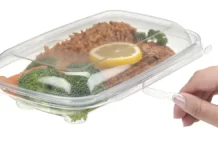
Article contributed by Nicole M. Vescova, Ellenoff Grossman & Schole LLP
After being closed or relying on limited take-out and delivery for the past few months, restaurants in New York are finally resuming service.
Under Governor Cuomo’s New York State’s Business Reopening Plan, restaurants may start offering outdoor dining in Phase 2, and resume indoor dining in Phase 3. Upon reopening or resuming service, restaurants are required to abide by certain health and safety protocols, including limiting capacity inside restaurants.
With this reduced capacity, restaurant owners may struggle with managing staffing levels and payroll costs when figuring out how to engage in this “new normal.” Implementing New York State’s unemployment insurance work share plan may be a viable and attractive solution to keep restaurants afloat and adequately staffed.
What is Work Share?
Work share is a unique unemployment insurance program that permits participating employers to temporarily reduce employees’ hours and provides participating employees with unemployment insurance compensation (“work share benefits”) in addition to their reduced wages.
To participate in a work share program, an employer must submit a plan to the state unemployment insurance agency for approval. The plan must meet certain requirements in order to be approved. Specifically, in New York, it must:
- Reduce work hours and corresponding wages between 20 – 60%;
- Replace a layoff of an equal percentage of the employer’s workforce;
- Maintain employee benefits, including health insurance and retirement benefits;
- Be agreed to by the union (if applicable);
- Not extend beyond 53 weeks; and
- Cover all employees in an affected unit and reduce their hours by the same percentage.
Once approved, both participating employees and employers must certify weekly for the employees to receive their work share benefits. In addition to their weekly wages, employees receive work share benefits in an amount equal to what their unemployment insurance benefit rate would have been if they were fully unemployed multiplied by the percentage that their hours and wages are reduced under the plan. Unlike partial unemployment, there is no cap as to how much income the employee may earn each week or how many days per week the employee may work. Further, until July 31, 2020, employees who participate in a work share plan are eligible to receive the additional weekly federal unemployment insurance benefit of $600. While a plan is in effect, an employer may not hire additional employees for the work group covered by the plan.
Why New York Restaurant Owners Should Consider Work Share Plans
Work share plans may be used by employers in the context of re-opening a business that was temporarily closed due to COVID-19. Given health and safety requirements, it is likely that when restaurants re-open, they will not reopen at full staffing levels. However, by reopening with a work share plan in effect, employers may decrease payroll costs and manage limited staffing needs, while also retaining more employees and allowing them receive an attractive income.
Employers have the liberty and flexibility to design plans that best suit their business and its fluctuating needs. Work share plans may be uniquely created for each class of employees and implemented on a weekly basis. For example, upon re-opening, a restaurant owner may develop a separate plan for kitchen staff, delivery staff and wait staff. As the restaurant’s needs change and business dictates, the restaurant owner can change the percentage by which each group of employees’ hours are reduced, if at all. If at any time, business permits full staff at the restaurant, the restaurant owner can simply not certify the plan for that week.
Additionally, there is no cost in administering a work share plan for the remainder of 2020, aside from the minimal amount of time needed each week to submit the required certifications. Normally, work share benefits, as a part of unemployment insurance, would be charged against an employer’s unemployment insurance experience rating. However, under the federal CARES Act, for claims filed between March 30, 2020 and December 27, 2020, shared work benefits are fully funded by the federal government and no charges will be applied to the employer’s account.
Further Employer Considerations in Implementing Work Share Plans
While work share plans may seem like the perfect solution to reopening restaurants’ needs, they are not a one-size-fits-all solution, and their implementation may cause additional labor and employment obstacles.
Work share plans may include both exempt and non-exempt employees. However, employers should consider converting exempt employees, such as managers and head chefs, to non-exempt hourly employees if participating in a plan. A reduction in hours and salary may result in the exempt employee no longer meeting the salary threshold. Further, work share plans require employers to track employees’ hours – something not usually done for exempt employees.
Another requirement of a work share plan is that the employer maintains the employees’ benefits under the same terms and conditions as they normally would. Employers should confirm that the reduction in hours does not result in an employee becoming ineligible to participate in any benefit plans.
Employers must also remember that under New York state and federal WARN Acts, an “employment loss” that requires WARN notice is defined to include a reduction in hours of work of more than 50% during a 6-month period, and should be cautious to avoid or meet such additional notice obligations.
Finally, for employers who received a Paycheck Protection Program loan, a work share plan may impact loan forgiveness as a reduction of wages in excess of 25% during the covered period may result in a reduction in the loan forgiveness amount.
Nevertheless, given their flexibility and the ability to plan around the complexities associated with such programs, restaurant owners should seriously consider implementing work share plans during the next few months while adjusting to reopening in a COVID-19 era.
Restaurant owners may access the Work Share application on the New York State Department of Labor’s website. It is recommended that applications be submitted electronically, if feasible, and approximately 3 weeks in advance of the plan’s expected start date.
 Nicole M. Vescova is an Associate in the Labor and Employment Practice Group. Ms. Vescova represents and advises clients in a variety of labor and employment matters, including workplace issues such as proper pay practice, employee classification, discipline, termination, and leave. Ms. Vescova drafts various employment policies and agreements such as company handbooks, commission agreements, and non-competition and non-disclosure agreements. She also defends employers against wage & hour claims, and discrimination & harassment claims. Nicole Vescova (nvescova@egsllp.com) can be reached via phone at 212-370-1300.
Nicole M. Vescova is an Associate in the Labor and Employment Practice Group. Ms. Vescova represents and advises clients in a variety of labor and employment matters, including workplace issues such as proper pay practice, employee classification, discipline, termination, and leave. Ms. Vescova drafts various employment policies and agreements such as company handbooks, commission agreements, and non-competition and non-disclosure agreements. She also defends employers against wage & hour claims, and discrimination & harassment claims. Nicole Vescova (nvescova@egsllp.com) can be reached via phone at 212-370-1300.

























